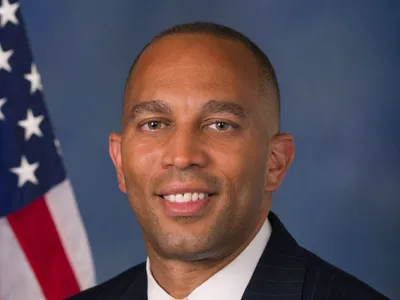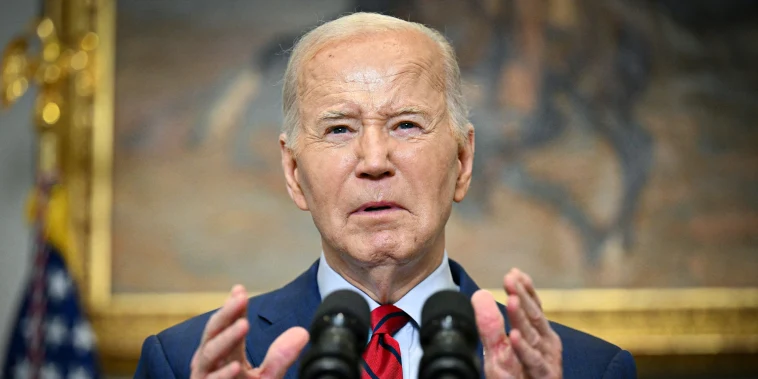Recent campaign finance data on opensecrets.org reveals that pro-Israel interest groups donated over $21 million to New York politicians between 1990 and 2024. The top 10 recipients, including Senate Majority Leader Chuck Schumer and House Minority Leader Hakeem Jeffries, received over $1 million from pro-Israel donors.
For example, records show that pro-Israel groups donated $21,144,419 to New York politicians between 1990-2024. The top 10 recipients are:
- Charles Schumer (D-NY): $1,725,324
- Eliot Engel (D-NY): $1,618,904
- Ritchie Torres (D-NY): $1,571,087
- Hakeem Jeffries (D-NY): $1,367,247
- Nita Lowey (D-NY): $998,509
- Lee Zeldin (R-NY): $916,834
- Kirsten Gillibrand (D-NY): $846,273
- Elise Stefanik (R-NY): $592,164
- Gregory Meeks (D-NY): $523,141
- Steve Israel (D-NY): $523,119
But pro-Israel groups are far from the only major donors leveraging campaign cash for political influence. Other special interests include Wall Street, big pharma, the fossil fuel industry, trial lawyers, and more. Well-funded lobbies across the spectrum use money to gain access and shape policy. The total amount received by all members of the House is $138,436,354, and the Senate $72,173,977.

Hakeem Jeffries (D-NY), who is the Minority Leader of the House of Representatives, is the #4 highest politician in the House who accepted $1,367 247 of Pro Isreal lobby money and is featured on the AIPAC website’s front page.

President Biden received $4,261,010 from pro-Israel special interest groups when he was a Senator.

The House recently passed the bipartisan Antisemitism Awareness Act by a vote of 320-91, with the support of Democratic moderates who are strong supporters of Israel. The bill, introduced by Rep. Mike Lawler (R-N.Y.), aims to combat antisemitism amidst pro-Palestinian protests on college campuses. However, it has raised serious concerns among some Christians who believe it could infringe upon their First Amendment rights. Mike Lawler reportedly received $59,801, only his first term as a Congressman.
These significant sums raise essential questions about the potential influence of lobbying on U.S. policy toward Israel, particularly in the context of the ongoing conflict in Gaza. The American taxpayer needs to scrutinize how campaign contributions intersect with foreign policy decisions and oversee how our money is spent for the war.
The U.S. provides Israel with over $3 billion in annual military aid, making it the largest cumulative recipient of U.S. assistance since World War II. Critics argue that this aid enables Israeli actions in Gaza that may violate international humanitarian law. A 2014 UN inquiry and reports by human rights groups alleged that some Israeli attacks were disproportionate or indiscriminate and failed to avoid civilian casualties adequately.

Recently, AIPAC has announced their support of Westchester County Executive George Latimer and has already donated $1.633. 912 to his campaign, which makes him the 3rd highest in pro-Israel candidate running in 2024.
Israel maintains its military operations were necessary self-defense measures against threats from Hamas, and the legal questions remain fiercely debated. However, there are valid concerns about whether U.S. politicians have failed to use their platforms and pressure to investigate possible abuses and ensure aid is conditioned on compliance with international law.
Similarly, the UN Human Rights Council’s 2009 Goldstone Report documented possible war crimes and crimes against humanity committed by both Israel and Palestinian armed groups during the 2008-2009 Gaza conflict. It cited evidence of disproportionate and indiscriminate attacks on civilians.
Human rights organizations like Amnesty International and Human Rights Watch have also published reports alleging that some Israeli airstrikes and shelling in Gaza failed to take necessary precautions to avoid civilian casualties and may have been disproportionate or indiscriminate under the laws of war.
A United Nations Independent Commission of Inquiry investigated the 2014 Gaza conflict. It raised concerns that some Israeli military operations may have breached international humanitarian law principles of distinction, proportionality, and precaution. The report pointed to incidents of attacks on residential buildings and civilian infrastructure.
Recently, 50 countries participated in hearings at the International Court of Justice (ICJ) examining the legal consequences of Israel’s 57-year occupation of Palestine. This landmark case follows the Court’s seismic ruling last month that Israel is “plausibly” committing genocide in Gaza.
It is troubling when politicians who have received significant campaign contributions from pro-Israel groups appear to dismiss findings from international bodies like the UN and the International Court of Justice regarding alleged violations of international law by Israel. This financial support could lead officials to prioritize the interests of a foreign government over holding them accountable.
At the same time, the U.S. provides substantial aid, including military assistance, to Israel even as many domestic needs go unmet. Our nation faces pressing challenges in areas like infrastructure, education, healthcare, and more that impact Americans’ daily lives. While foreign aid plays an important role, we must question if our current priorities and spending abroad are coming at too high a cost to the well-being of our own communities.
There is a clear need for a thorough re-evaluation of how the U.S. balances its international relationships with domestic imperatives. Elected officials should be transparent about their funding sources and take steps to ensure campaign money does not lead them to act against the national interest. Most crucially, politicians must be responsive to the needs and values of the constituents they represent, not deep-pocketed interest groups.
Ultimately, building a strong, equitable and prosperous society at home is vital to America’s ability to advance its values on the world stage. A shift toward prioritizing the security and welfare of U.S. communities, while still maintaining a principled foreign policy, is essential. This is an admittedly complex challenge with many competing factors at play. But a failure to grapple with it risks undermining both American leadership abroad and the health of our democracy itself.
Organizations like AIPAC openly brag about how much money they give to Republicans and Democrats to secure our tax dollars for Israel. This is a slap in the face to American democracy and the hardworking people who barely have enough food to eat here in America.
However, the sheer scale of pro-Israel funding to politicians and other particular interest lobbying underscores the need for greater transparency and guardrails in our campaign finance system. The goal should be to inform and engage the public, not to demonize any single group or promote simplistic narratives. We can only build a foreign policy that upholds the rule of law and reflects our highest ideals through nuanced discourse and a commitment to facts and moral principles.
A healthy democracy requires that the public’s interests be represented in the halls of power, not just those of deep-pocketed donors who represent the interests of other countries. American voices must be fully represented.
ALL INFORMATION CAN BE FOUND ON OPENSECRETS.ORG











Darlise Anapios